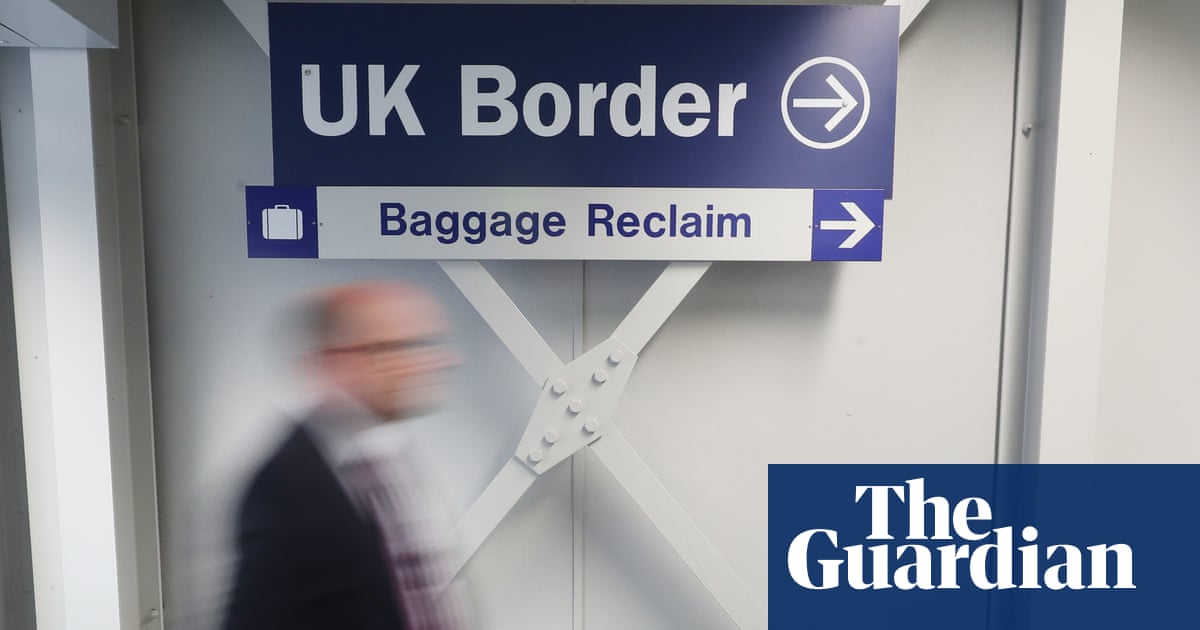Photo credit: www.theguardian.com
The number of asylum seekers who find themselves in a state of uncertainty following the rejection of their applications has soared by nearly 500% over a span of two years, according to an analysis conducted by the Refugee Council. This significant increase is placing substantial financial strain on taxpayers.
Data released by the Ministry of Justice reveals that at the close of 2024, there were 41,987 asylum appeals pending in tribunal courts, a dramatic rise from 7,133 at the beginning of 2023. In the last quarter of 2024 alone, 12,183 new appeals were filed, following actions taken by the Labour government to expedite decision-making in asylum cases upon assuming office.
Overall, the volume of asylum application appeals submitted to the first-tier tribunal in 2024 has seen an unprecedented year-on-year surge of 71%. This increase coincides with a decrease in approval rates, with the acceptance rate for asylum seekers dropping to 47%. The Refugee Council has pointed out that efforts by the Home Office to address the asylum backlog—such as recruiting additional caseworkers and shortening initial interviews—may have inadvertently led to an uptick in administrative errors and oversights.
Enver Solomon, head of the Refugee Council, emphasized the need for a more thorough approach to producing accurate first-instance decisions to avoid creating a new backlog elsewhere. He argued that effectively resolving asylum cases would help alleviate costs and reduce the number of individuals living in uncertainty, often in temporary accommodations like hotels where they are unable to work or move forward with their lives. The use of hotel accommodations has become a controversial issue, reflecting broader governmental shortcomings and community tensions. Solomon urged for a definitive plan to eliminate hotel usage for asylum seekers by the end of 2025.
At the end of 2024, official statistics indicated that approximately 38,079 individuals were being housed in hotels at the cost of the Home Office. If these numbers persist throughout 2025, the estimated annual expenditure may reach nearly £1.5 billion.
The increase in asylum appeals has also been partially attributed to policy changes introduced by former Prime Minister Rishi Sunak, designed to expedite the processing of asylum claims. These alterations included reducing the training period for decision-makers and imposing strict time limits on interviews, which some argue has compromised the quality of processing.
Further complicating the situation is the ongoing shortage of immigration lawyers, which has extended the timelines for asylum appeals. This shortage has led to many hearings being adjourned or individuals opting to represent themselves, a choice that can prolong proceedings significantly compared to those with legal counsel.
Under the administration of Yvette Cooper, the Home Office recorded a more than twofold increase in initial decision-making from the previous quarter, reflecting ongoing efforts to address the backlog. The Ministry of Justice is also actively recruiting around 1,000 judges and tribunal members annually across various courts. In addition, Shabana Mahmood, the Lord Chancellor, announced a minimum 10% increase in civil legal aid rates for professionals in the immigration sector, aiming to improve legal support in this area.
A spokesperson for the government reiterated that asylum claims are evaluated individually. They acknowledged the inadequacies in the inherited asylum system, asserting that urgent measures have been implemented to restart processing and clear existing cases. The government aims to save taxpayers an estimated £4 billion over two years while gradually reducing reliance on asylum hotels to mitigate the elevated costs associated with asylum accommodations.
Source
www.theguardian.com

